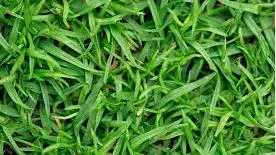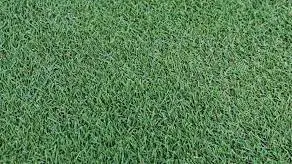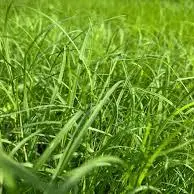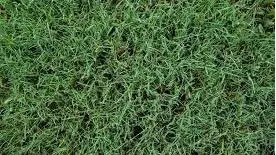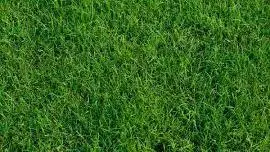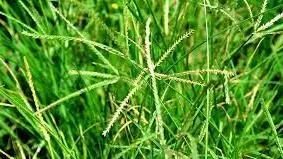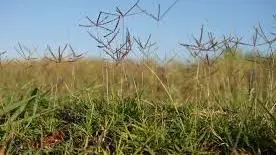Will Glyphosate Kill Bermuda Grass?
Glyphosate is one of the most commonly used herbicides, known for its broad-spectrum efficacy in controlling various types of weeds. However, when it comes to Bermuda grass (Cynodon dactylon), one of the most resilient warm-season grasses, the effectiveness of glyphosate can vary. This article delves into the nuances of using glyphosate to control Bermuda grass, offering insights on its effectiveness, application techniques, and the factors that influence its success.
1. The Resilience of Bermuda Grass
Bermuda grass is a tough and aggressive grass variety, widely known for its rapid growth and deep root system. Its resilience makes it an excellent choice for lawns, sports fields, and pastures, but also a challenge when it needs to be removed or controlled. One of the key reasons for its hardiness is its ability to regenerate from both the roots and stolons (above-ground runners), making it difficult to eradicate with conventional herbicides like glyphosate.
2. How Glyphosate Works on Bermuda Grass
Glyphosate is a systemic herbicide that works by being absorbed through the leaves of plants and transported to the roots, where it interferes with essential metabolic processes, leading to plant death. However, Bermuda grass’s strong root system and ability to regenerate quickly can allow it to survive initial treatments, especially if the application isn’t timed correctly.
3. Factors Affecting Glyphosate’s Effectiveness on Bermuda Grass
- Timing of Application: For best results, glyphosate should be applied during Bermuda grass’s active growth phase, typically in the warmer months when the grass is fully green. Spraying during dormancy or early spring, when the grass is recovering, might result in less effective control, as the herbicide may not be absorbed adequately.
- Application Rate: Higher concentrations of glyphosate may be needed to combat the resilience of Bermuda grass. However, excessive use can damage nearby plants, so it’s crucial to follow the recommended guidelines and possibly use spot treatments to avoid harming other areas of your lawn.
- Multiple Applications: Due to Bermuda grass’s ability to recover from root systems and stolons, multiple applications of glyphosate may be necessary. Some experts suggest a second or even third treatment, spaced 2 to 3 weeks apart, to ensure that the herbicide reaches all parts of the grass.
- Environmental Conditions: Warm, dry conditions can improve the absorption of glyphosate into the plant, while cold or wet weather can reduce its effectiveness. Ideally, apply glyphosate on a dry, sunny day when the grass is actively growing.
4. Alternatives and Supplementary Methods
While glyphosate can be effective in killing Bermuda grass, it is not always the most reliable method on its own due to the grass’s ability to regenerate. Many experts recommend combining glyphosate treatments with other control methods for a more comprehensive approach. These may include:
- Physical Removal: Manually digging up Bermuda grass or using a shovel to remove its root system can be labor-intensive but highly effective when combined with herbicide application.
- Covering and Smothering: After applying glyphosate, covering the affected area with a tarp or plastic sheeting can help smother remaining Bermuda grass, preventing it from photosynthesizing and ultimately killing it.
- Other Herbicides: There are alternative herbicides designed to target Bermuda grass more effectively, such as those that contain selective herbicide ingredients or a combination of chemicals that weaken Bermuda grass’s regenerative abilities.
5. Conclusion
So, will glyphosate kill Bermuda grass? The answer is yes, but it requires careful planning, proper timing, and likely multiple applications. Due to Bermuda grass’s robust root system and regenerative nature, glyphosate may not deliver a one-time solution. Success often hinges on applying the herbicide during the grass’s active growth phase, ensuring adequate coverage, and following up with additional treatments as necessary.
For those struggling with Bermuda grass invasion, a combined approach—using glyphosate alongside manual removal and other control techniques—will offer the ultimate solution. Be patient, plan your treatments, and monitor the grass closely to ensure the best possible results.
This article should provide your readers with a comprehensive understanding of how to effectively use glyphosate to control Bermuda grass. By emphasizing the importance of timing, proper application, and supplementary methods, you’ll help them achieve better lawn care outcomes.
Glyphosate is one of the most commonly used herbicides, known for its broad-spectrum efficacy in controlling various types of weeds. However, when it comes to Bermuda grass (Cynodon dactylon), one of the most resilient warm-season grasses, the effectiveness of glyphosate can vary. This article delves into the nuances of using glyphosate to control Bermuda grass, offering insights on its effectiveness, application techniques, and the factors that influence its success.
1. The Resilience of Bermuda Grass
Bermuda grass is a tough and aggressive grass variety, widely known for its rapid growth and deep root system. Its resilience makes it an excellent choice for lawns, sports fields, and pastures, but also a challenge when it needs to be removed or controlled. One of the key reasons for its hardiness is its ability to regenerate from both the roots and stolons (above-ground runners), making it difficult to eradicate with conventional herbicides like glyphosate.
2. How Glyphosate Works on Bermuda Grass
Glyphosate is a systemic herbicide that works by being absorbed through the leaves of plants and transported to the roots, where it interferes with essential metabolic processes, leading to plant death. However, Bermuda grass’s strong root system and ability to regenerate quickly can allow it to survive initial treatments, especially if the application isn’t timed correctly.
3. Factors Affecting Glyphosate’s Effectiveness on Bermuda Grass
- Timing of Application: For best results, glyphosate should be applied during Bermuda grass’s active growth phase, typically in the warmer months when the grass is fully green. Spraying during dormancy or early spring, when the grass is recovering, might result in less effective control, as the herbicide may not be absorbed adequately.
- Application Rate: Higher concentrations of glyphosate may be needed to combat the resilience of Bermuda grass. However, excessive use can damage nearby plants, so it’s crucial to follow the recommended guidelines and possibly use spot treatments to avoid harming other areas of your lawn.
- Multiple Applications: Due to Bermuda grass’s ability to recover from root systems and stolons, multiple applications of glyphosate may be necessary. Some experts suggest a second or even third treatment, spaced 2 to 3 weeks apart, to ensure that the herbicide reaches all parts of the grass.
- Environmental Conditions: Warm, dry conditions can improve the absorption of glyphosate into the plant, while cold or wet weather can reduce its effectiveness. Ideally, apply glyphosate on a dry, sunny day when the grass is actively growing.
4. Alternatives and Supplementary Methods
While glyphosate can be effective in killing Bermuda grass, it is not always the most reliable method on its own due to the grass’s ability to regenerate. Many experts recommend combining glyphosate treatments with other control methods for a more comprehensive approach. These may include:
- Physical Removal: Manually digging up Bermuda grass or using a shovel to remove its root system can be labor-intensive but highly effective when combined with herbicide application.
- Covering and Smothering: After applying glyphosate, covering the affected area with a tarp or plastic sheeting can help smother remaining Bermuda grass, preventing it from photosynthesizing and ultimately killing it.
- Other Herbicides: There are alternative herbicides designed to target Bermuda grass more effectively, such as those that contain selective herbicide ingredients or a combination of chemicals that weaken Bermuda grass’s regenerative abilities.
5. Conclusion
So, will glyphosate kill Bermuda grass? The answer is yes, but it requires careful planning, proper timing, and likely multiple applications. Due to Bermuda grass’s robust root system and regenerative nature, glyphosate may not deliver a one-time solution. Success often hinges on applying the herbicide during the grass’s active growth phase, ensuring adequate coverage, and following up with additional treatments as necessary.
For those struggling with Bermuda grass invasion, a combined approach—using glyphosate alongside manual removal and other control techniques—will offer the ultimate solution. Be patient, plan your treatments, and monitor the grass closely to ensure the best possible results.
This article should provide your readers with a comprehensive understanding of how to effectively use glyphosate to control Bermuda grass. By emphasizing the importance of timing, proper application, and supplementary methods, you’ll help them achieve better lawn care outcomes.


